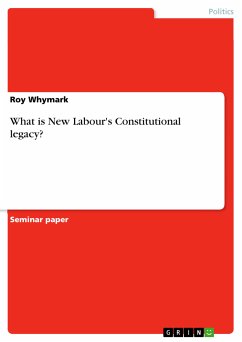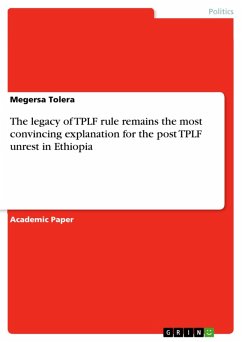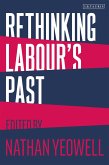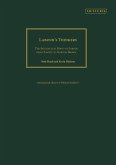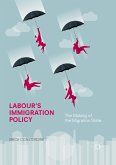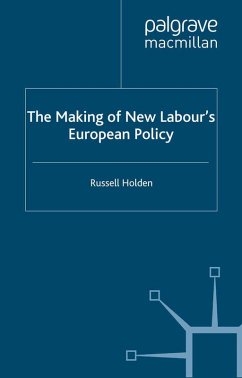Seminar paper from the year 2010 in the subject Politics - Region: Western Europe, grade: 77%, University of London (Birckbeck College), course: Contemporary British Politics, language: English, abstract: This paper considers the question 'what is New Labour's constitutional legacy?' To frame the boundaries of this essay, and given the uncodified nature of the UK constitution, I borrow the definition of 'constitution' offered by Bogdanor: 'A constitution is nothing more than a collection of the most important rules prescribing the distribution of power between the institutions of government - legislature, executive and judiciary - and between the individual and the state' (Bogdanor, 2009), while adding that rules can be both explicit and implicit (i.e. conventions). This paper considers the success of Labour's constitutional reforms, within the context of what Labour proposed it would achieve. Straw argues that Labour had five principles guiding reform: decentralisation, stronger citizen rights, greater openness, judicial reform, and democratic reform (Straw, 2010). The first three were discussed in a 1998 Labour Constitution Unit pamphlet while the latter two were added by McDonald and Hazell (McDonald and Hazell, 2007).
Dieser Download kann aus rechtlichen Gründen nur mit Rechnungsadresse in A, B, BG, CY, CZ, D, DK, EW, E, FIN, F, GR, HR, H, IRL, I, LT, L, LR, M, NL, PL, P, R, S, SLO, SK ausgeliefert werden.

